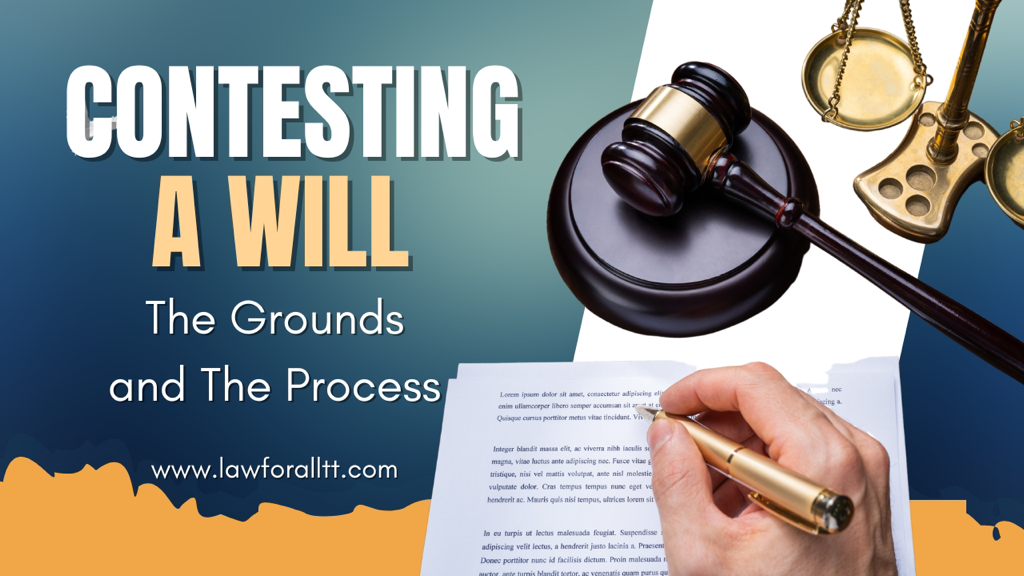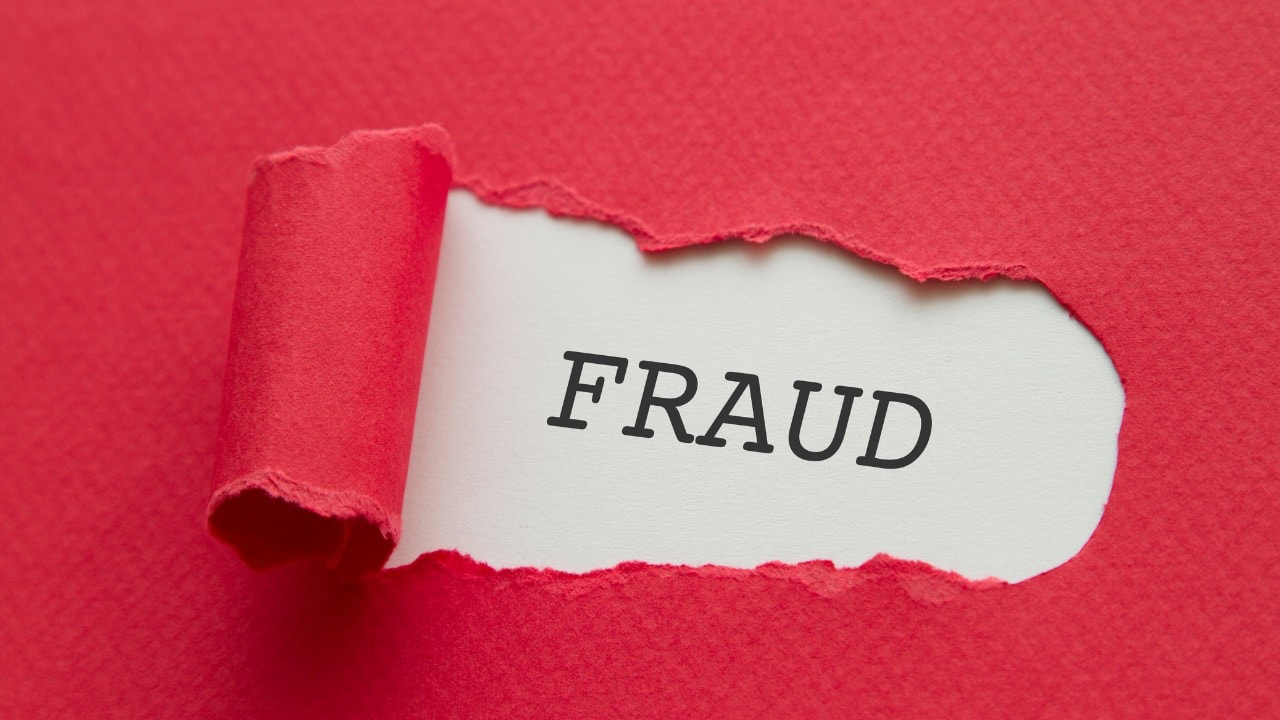|
The death of a loved one is a difficult time and situations in which a will is contested can be an additional burden. In Trinidad and Tobago, there are specific legal grounds, procedures, and considerations that must be understood before embarking on this journey. In this article, we will explore the key aspects of contesting a will in Trinidad and Tobago.
Grounds for Contesting a Will
Before delving into the process, it's essential to understand the legitimate grounds on which a will can be contested in Trinidad and Tobago: 1. Lack of Testamentary Capacity One frequently encountered basis for challenging a will arises when there are concerns about the testator's mental capacity when he made the will. It is necessary to demonstrate that the testator (the individual creating the will) wasn't of sound mind or did not fully grasp the implications of his decisions. 2. Undue Influence If there is evidence to suggest that the testator was coerced, manipulated, or unduly influenced by someone to create or modify the will in a way that doesn't align with his true intentions, the will may be contested. Such evidence may include physical violence, verbal bullying or simply talking to a sick person who is seriously ill in such a way that that person may be induced for quietness-sake to do anything. Or it can be a circumstance where one of the children of the testator deliberately tells the testator incorrect information in order to secure an inheritance i.e. there is "deliberate poisoning of a person's mind."
3. Fraud or Forgery
If there is reason to believe that the will was forged or executed under fraudulent circumstances, it can be contested. For example, if it can be proved that a will in its entirety has been forged or the person allegedly making the will ("the testator's") signature has been forged, this will result in the will being invalid. 4. Improper Execution Wills in Trinidad and Tobago must adhere to specific legal formalities. It must be signed by a testator - in the presence of at least two witnesses, who must sign there and then. If this wasn't done, the will can be challenged. Click here to read more about these formalities. Contesting a will on the grounds of improper execution typically involves demonstrating that the will did not meet these formal requirements. 5. Lack of knowledge and approval Where a will has been executed correctly (i.e. the testator has signed the will in the presence of two witnesses who have also signed the will) and the testator had the necessary testamentary capacity, knowledge and approval will be presumed. However, there are certain circumstances, whereby it must be proved that the testator had the necessary knowledge to understand the content of his will and that he approved the content. If the testator was deaf and/or dumb; could not speak or write or was paralysed; blind or illiterate; or the will is alleged to have been signed by another person for the deceased at his direction; then it must be proved that the testator had the necessary knowledge to understand the content of his will and that he approved the contents. Additionally, if the circumstances surrounding the will being executed raise suspicion, it will then be for those who believe the will to be valid to call evidence to dispel the suspicions. The greater the suspicion, the greater the burden on the person trying to prove the will to dispel that suspicion. In circumstances where part of the will is read over to the testator but not all the will, the rules relating to knowledge and approval may only apply to part of the will.
The Process of Contesting a Will
1. Seek Legal Counsel The first step is to consult with an experienced attorney who specializes in probate and estate litigation. They will evaluate the circumstances and determine if there are valid grounds for contesting the will. 2. Enter a Caveat If a grant of probate application has already been filed at the Probate Registry; meaning that the process to administer the estate of the deceased according to the will has begun, contesting the will and halting the probate procedure may necessitate your attorney entering a caveat at the Probate Registry. A caveat is a written notice which prevents the Probate Registry from issuing a grant of probate to any applicant without the caveator (the person entering the caveat) being made aware of this. A caveat essentially pauses the process for six months, though this can be extended. 3. Commence probate action If there are legitimate grounds, your attorney will commence a probate action with evidence to support the claim in the High Court of Trinidad and Tobago. The evidence may include witness testimonies, medical records and any relevant documents. 4. Court Proceedings The case will be heard in court, and each party will present their arguments and evidence. The court will make a decision based on the merits of the case. 5. Mediation or Settlement In some instances, the parties involved may opt for mediation or negotiate a settlement outside of court. Contesting should not be taken lightly. It is key that you understand the implications of contesting a will and consider speaking to an attorney at an early stage. Important Notice: This post does not constitute legal advice. Always consult with an attorney on any legal problem or issue. This website is managed by AURORA Chambers; a law practice in Trinidad and Tobago. Click HERE to receive updates straight to your inbox by subscribing to our newsletter.
5 Comments
Kishor Baball
23/9/2023 03:11:17 pm
My deceased parents left a 5 acre parcel of land by a will to be shared equally to the 3 of us, brothers. That was some 20 years ago. We have surveyed and portion the land in 3 equally parts, but have not done separate deeds. We only have the old deed of my parents. Now one of my brother died 2 months ago. What becomes of his portion of land. He did not leave a will as he was mentally sick.I also have 2 sisters. What becomes of his portion of land. I believe my other brother wants to take that portion of land. Can you advise me.
Reply
LAW FOR ALL
26/9/2023 11:31:53 am
Hello Kishor Baball, yes we can advise you. Please send us a WhatsApp: 1-868-374-2905 or call our office: 1-868-236-6197, to book a consultation.
Reply
Sandra
13/5/2024 10:27:53 pm
Hi, I have a question about a possession deed. My brother robbed my mom of her property. He passed away, and my mom saw that her name wasn’t on the deed. She said her name was supposed to be on the deed and never removed.
Reply
Marcia Charles Absalom
20/6/2024 10:38:14 am
My husband recently died , he left a will to his daughter and grandson, and to his wife I can live in the house until my demise as a license , My husband was fully supported by me financially and was by his side through his entire illness of more than seven years. He was extremely ill when he executed this will. With his grandson and his daughter,
Reply
LAW FOR ALL
20/6/2024 10:46:09 am
Hello, good day, thank you for your interaction, it seems like your inquiry was cut short, you can send us an email at [email protected], send us a WhatsApp message at 1 (868) 374-2905, or call our office at 1 (868) 236-6197.
Reply
Leave a Reply. |
Categories
All
Archives
June 2024
|
LawForAllTT.com |
|






 RSS Feed
RSS Feed